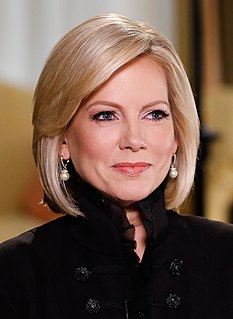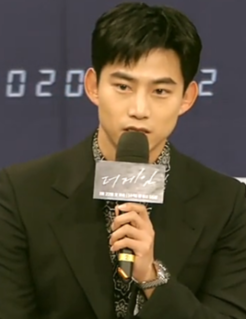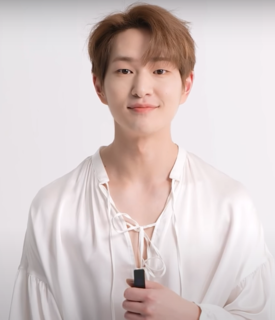A Quote by Kim Hyesoon
It seems Korean women are enjoying a passive and fragile status, intoxicated by appearance. Not only feminism, but any serious discourse ends up being swept away by popular culture in Korea.
Related Quotes
I think the regime in North Korea is more fragile than people think. The country's economic system remains desperate, and one thing that could happen for example would be under a new government in South Korea, to get the South Korean government to live up to its own constitution, which says any Korean who makes it to South Korea, is a Korean citizen. A citizen of the Republic of Korea. And you could imagine the impact that would have inside North Korea if people thought, "If I could get out and make it to South Korea, I could have a different life."
The nineties as a pop cultural sphere was a really fertile time for feminism that was grounded and located in popular culture. I'm talking about before the Spice Girls - Sassy Magazine, riot grrrl, the Beastie Boys, Nirvana. You had this alternative culture that was very much speaking up on behalf of women and in favor of women.
During the periods when South Korea played a more active role, the inter-Korean relationship was more peaceful, and there was less tension between the United States and North Korea. The last U.S. administration pursued a policy of strategic patience and did not make any effort to improve its relationship with North Korea. Also, the previous Korean government did not make any such efforts. The result is the reality you see today - North Korea continuing to advance its nuclear and missile program.
I'm so used to America, used to the traffic in L.A., and I don't really feel it click with the Korean culture. But obviously, I have a Korean face, and I feel like that's just - you know, I can't walk around people like I'm, like, straight-up American. It's like, I'm Korean American. My parents are from Korea.
When artists and philosophers talk only amongst themselves, they ignore the potential of popular culture to become a variety of dialogues with and between everyday people. Its discourse may be productive of desire and pleasure, but popular culture is also a language in which people discuss politics, religion, ethics, and action.
It is obvious that many women have appropriated feminism to serve their own ends, especially those white women who have been at the forefront of the movement; but rather than resigning myself to this appropriation I choose to re-appropriate the term “feminism,” to focus on the fact that to be “feminist” in any authentic sense of the term is to want for all people, female and male, liberation from sexist role patterns, domination, and oppression.
When women's sexuality is imagined to be passive or "dirty," it also means that men's sexuality is automatically positioned as aggressive and right-no matter what form it takes. And when one of the conditions of masculinity, a concept that is already so fragile in men's minds, is that men dissociate from women and prove their manliness through aggression, we're encouraging a culture of violence and sexuality that's detrimental to both men and women.































